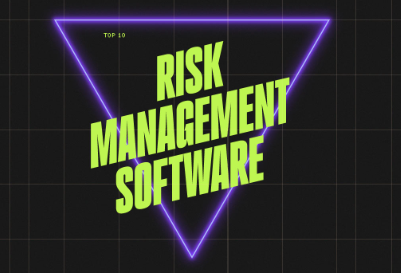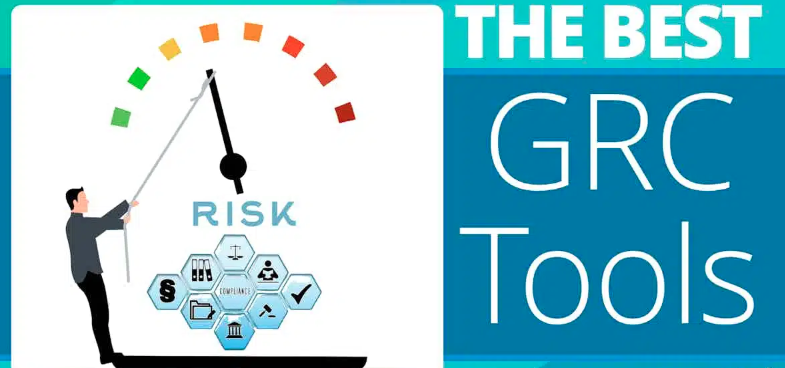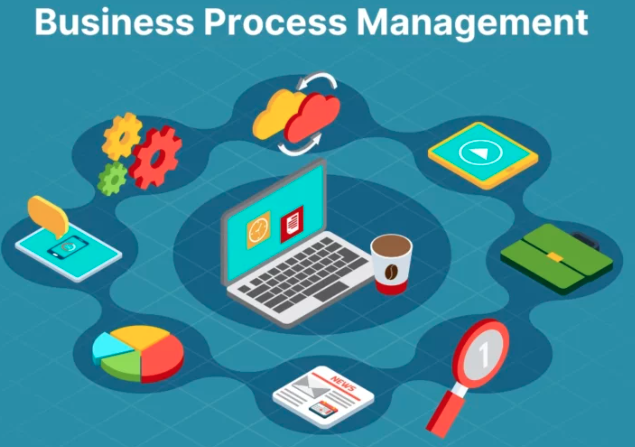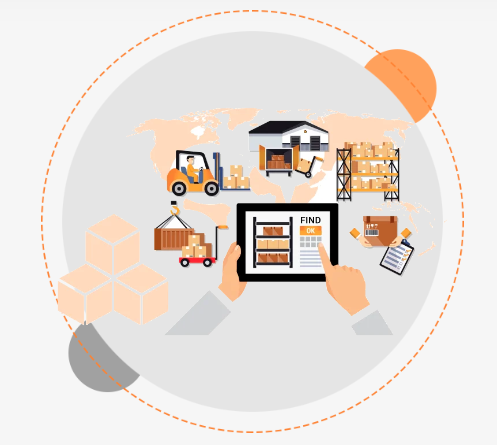As businesses continue to face a rapidly changing landscape in 2025, the need for effective risk management has never been more critical. Whether it's financial risks, operational risks, or cybersecurity threats, businesses of all sizes must adopt tools that help them identify, assess, and mitigate these risks. Risk management software for small business is essential for ensuring that even smaller enterprises can stay ahead of potential threats. In this article, we will explore the best risk management software for small business in 2025, focusing on its features, benefits, and how it can help safeguard your company’s future.
Table of Contents
Find the Best Risk Management Software of 2025

What is Risk Management Software?
Risk management software is a tool designed to help businesses identify, assess, and mitigate potential risks in their operations. For small businesses, this software can be a game-changer, providing valuable insights into risk factors that may otherwise go unnoticed. Risk management software for small business typically includes features such as risk assessment tools, incident tracking, and compliance management. In 2025, the latest versions of these tools offer more advanced capabilities like AI-driven analysis and automated reporting, making it easier for small businesses to manage their risks efficiently.
Key Features of Risk Management Software for Small Business
When choosing risk management software for small business, it’s important to look for features that address the unique needs of smaller organizations. Here are some of the top features to consider:
- Risk Identification and Assessment: The primary function of any risk management software is to identify potential risks and assess their impact. A good system will allow you to classify risks by category, such as financial, operational, legal, or reputational, helping you prioritize your efforts.
- Incident Tracking and Management: Effective software will enable you to track incidents that have occurred and document how they were managed. This is especially important for small businesses that need to keep records for regulatory compliance or internal auditing.
- Compliance and Regulatory Monitoring: Compliance is critical, especially in industries like healthcare, finance, and manufacturing. The best risk management software for small business will have features that help ensure your company adheres to industry regulations and standards, reducing the chance of costly penalties or fines.
- Real-time Reporting and Analytics: Reporting and analytics tools allow businesses to monitor their risk exposure in real time. This feature enables quick decision-making, as you can adjust strategies based on up-to-date risk data.
- Automation and Alerts: Automation is a key benefit for small businesses that may not have a large team dedicated to risk management. Risk management software for small business can automate certain processes, such as risk identification or incident reporting. Additionally, alerts can notify you when a risk threshold has been met, allowing you to take action before a situation escalates.
- Cloud-based Access: Many of the leading risk management software for small business solutions are cloud-based, making them accessible from any device with an internet connection. This flexibility is especially valuable for businesses with remote teams or multiple locations.
- Customization and Scalability: As your business grows, your risk management needs will evolve. The best software will be customizable to accommodate your specific industry and operational requirements, and scalable to meet future demands.
Top Risk Management Software for Small Business in 2025
Now that we’ve covered key features, let’s look at some of the best risk management software for small business in 2025. These solutions are designed to be user-friendly, affordable, and powerful enough to protect small businesses from a wide range of risks.
- RiskWatch: RiskWatch offers a comprehensive risk management platform that is ideal for small businesses. With its intuitive interface, it helps businesses perform risk assessments, track incidents, and ensure compliance. RiskWatch also features real-time risk monitoring and detailed reporting to keep your business on track.
- Resolver: Resolver is a popular choice for small businesses looking for an affordable and effective risk management solution. It helps businesses identify risks, track incidents, and create mitigation strategies. With Resolver, businesses can also automate compliance workflows, making it easier to manage risk across departments.
- LogicManager: LogicManager is another great option for small businesses in need of risk management software. Its cloud-based platform allows for seamless collaboration and real-time data analysis. It includes features like customizable risk assessments, incident tracking, and detailed analytics to help businesses make informed decisions.
- Riskalyze: Known for its powerful analytics tools, Riskalyze is designed to help small businesses assess financial risks and make better investment decisions. Riskalyze uses data science to provide insights into portfolio risk and help business owners understand how external factors can affect their bottom line.
- NAVEX Global: NAVEX Global is an all-in-one compliance and risk management software that can be scaled to meet the needs of small businesses. It offers tools for risk identification, incident management, and compliance tracking, making it an excellent choice for businesses in regulated industries.
How to Choose the Best Risk Management Software for Small Business
Selecting the best risk management software for small business requires careful consideration of your company's needs. Follow these steps to help make the best decision:
- Assess Your Risk Factors: Identify the primary risks your business faces. Are you concerned with financial risks, legal liabilities, cybersecurity threats, or something else? By understanding your biggest threats, you can narrow down software that addresses those areas specifically.
- Consider User-Friendliness: Small businesses often have limited resources and staff. Therefore, it’s crucial to choose software that is easy to use and doesn’t require extensive training. Look for a solution with a simple, intuitive interface that your team can start using immediately.
- Evaluate Scalability: Choose software that can grow with your business. As your company expands, so will your risks. Look for a platform that can handle increased data, more users, and additional features as needed.
- Check for Integrations: Your risk management software for small business will likely need to integrate with other tools you already use, such as accounting software, CRM systems, or HR platforms. Make sure the software you choose offers integration capabilities to streamline your operations.
- Review Customer Support: Good customer support is essential, especially if your team is new to risk management software. Check if the provider offers training, tutorials, and a responsive support team to assist you when issues arise.
Comparison of the Best Risk Management Software for Small Business
| Software | Key Features | Best For |
|---|---|---|
| RiskWatch | Risk assessments, incident tracking, real-time monitoring | Small businesses across industries |
| Resolver | Risk identification, automated compliance workflows | Businesses seeking an easy-to-use solution |
| LogicManager | Cloud-based, customizable risk assessments, analytics | Growing businesses needing scalability |
| Riskalyze | Financial risk analytics, portfolio analysis | Small businesses focused on financial risk |
| NAVEX Global | Compliance management, risk identification, incident tracking | Businesses in regulated industries |
Conclusion
The best risk management software for small business in 2025 provides a comprehensive set of tools to help businesses identify, assess, and mitigate risks effectively. Whether you choose RiskWatch, Resolver, LogicManager, Riskalyze, or NAVEX Global, implementing a robust risk management solution will ensure your business is protected from potential threats and compliant with industry regulations. By assessing your unique needs and evaluating the software’s features, you can select the perfect tool to safeguard your small business in today’s unpredictable environment.
Explore

Best Governance, Risk & Compliance (GRC) Software for 2025

Find the Best Business Process Management (BPM) Software of 2025

Find The Best Inventory Management Software in 2025

A Guide To Find Good Online Business Management Courses Of 2025

Find the Best Cloud Management Platforms of 2025

Find the Best Remote Access Software & Tools for 2025

Find the Best DUI Lawyer in 2025

Find the Best Data Recovery Services of 2025
